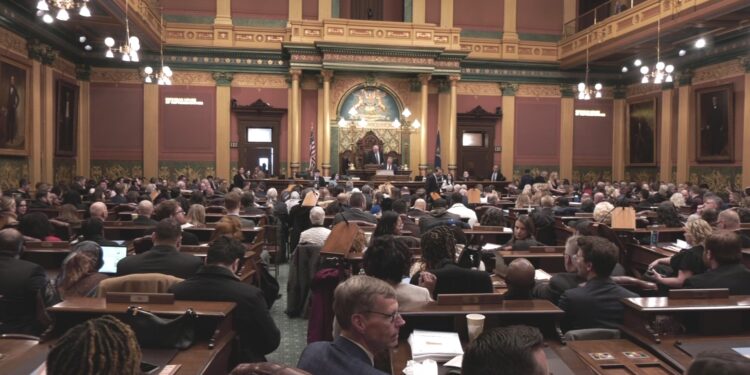LANSING, Mich. (WZMQ) – With the rapid rise of AI technology, state lawmakers are looking to put limits on its use.
This isn’t the first time Representatives Penelope Tsernoglou and Matthew Bierlein have introduced bills that restrict AI. The legislation was created last term to institute penalties for certain explicit AI images.
Michigan’s House of Representatives passed the bills last week. The legislation creates criminal penalties and allows for civil action for the nonconsensual creation and sharing of deepfake images or videos that are sensitive or feature intimate parts of an individual.
Deepfakes are highly realistic, computer-generated images that can make it look like someone has done something they’ve never actually done.
Bierlein said that because AI is evolving quickly, the deepfake element is becoming increasingly concerning as it becomes easier and easier to manipulate an image, and more convincing.
“Nonconsensual intimate deep fakes are not ok. You have a right to protect your image, and with today’s technology, it’s just so easy for that to be misused, and we’re just trying to do everything we can to protect folks,” Bierlein said. “We actually worked with some prosecutors this time around to make sure that what we were bringing forward wasn’t just what we thought was the right idea, but was a tool that they could actually use.”
These bills target explicit deepfakes. Currently, there are no laws in place to prevent the sharing of deepfakes, even if an individual hasn’t consented to the creation or sharing of it.
The penalties range from $1,000 a day in compensation to a $3,000 to $5,000 one-time fine. The charges can range from a misdemeanor to a felony punishable by imprisonment for up to 3 years.
The bills are now waiting in the Senate and have been referred to the Committee on Civil Rights, Judiciary, and Public Safety for further consideration.










